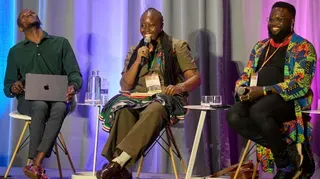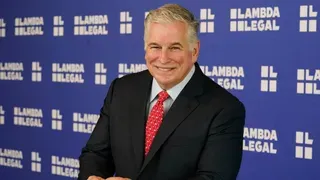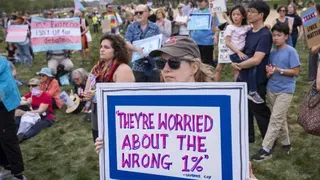April 7, 2010
California City Approves Gay Retirement Community
Kilian Melloy READ TIME: 3 MIN.
Santa Rosa, California, is slated to see the construction of a new GLBT retirement community--a project that had faced stiff initial resistance, with opponents citing everything from greenhouse gas production and a loss of trees, to a too-dense population of 148 housing units on a parcel of land just under 10 acres.
But once the project came to a vote in the Santa Rosa City Council, it was approved in a mere half hour--despite the project having taken five years to get that far. Local newspaper the Press Democrat reported on April 6 that there had been concerns that the real motives behind opposition to the project had more to do with anti-gay animus than environmental concerns; indeed, one councilmember who voted against the project cited emails that she had received from community residents who didn't want to see the retirement community go forward.
The community is to be called Fountaingrove Lodge, the Press Democrat reported. Homeowner's association president Skip Epperly remains opposed to the project, even though it had been scaled back and provisions to preserve the area's natural beauty have been incorporated; Epperly says that the community might expand at a later time on to two additional parcels.
But those parcels are for sale, rejoined a spokesman for Aegis Senior Living, the company planning to build the community. Santa Rosa is a picturesque city north of San Francisco in a region known for its vineyards.
The plight of GLBT seniors has been given increasing scrutiny in recent years, with even the New York Times reporting on horrifying allegations of anti-gay harassment and shunning experienced at facilities for senior Americans by GLBT elders who may have been among the forefront of gay liberation, but who now feel pressured back into the closet in order to survive.
The market for GLBT retirement homes and retirement communities has been uncertain; in 2008, the economic meltdown caused the delay of projects to address the needs of GLBT elders in Palm Springs and Boston. Even so, both in America and abroad, the idea of GLBT-specific facilities and communities remains a vital one, given that gay baby boomers are aging right along with the rest of their cohort.
There are other issues that elder GLBTs face, too. Even if they secure safe housing, will they be isolated? Many GLBTs have no children, and may even have lost ties with their relatives. And then there's the fact that gays--perhaps even more so than straights--are ageist: older gays simply cease to register on the wider social radar. Such issues also need to be addressed, Michael Adams, the executive director of Services & Advocacy for GLBT Elders (SAGE) suggested to EDGE in a Sept. 15, 2009, interview.
"There's a critical shortage of quality housing for elderly people in general in this country," noted Adams. "Also, there's the additional problem of a place where we can be out and comfortable simply being who we are. When you put those two together, it's a real double whammy.
"We have seen emerged a very small number of LGBT communities" designed to address the needs of gay elders, Adams said. "But the reality is that the vast, vast, vast majority will never live in those places. So we have to fundamentally challenge and open up the vast array of existing housing so that they are welcoming."
Filmmaker Stu Maddux told EDGE in an interview about his upcoming documentary Gen Silent that there may yet be hope--from the very same gay elders who fought for GLBT rights in their younger days. "I think it's going to subside," Maddux said of anti-gay animus among older Americans and the health care providers upon whim they rely. "I don't think it'll go away. I'm from the Midwest, and I know from my background that the wheels move slow. It's going to take our lifetime to get [the medical system for elder care] ready for the young people coming out today. I am hopeful about that, much more so than for my generation, people already in their 40s.
"But I think the most important thing is to record the history of the people who are there now, in their 70s and 80s," Maddux added, "because we're going to be looking to them when we're their age for examples of how we got through all this. They are the silent generation, having to cut the path for all of us. And now we owe it to them to make sure that they aren't silenced at the end."
Kilian Melloy serves as EDGE Media Network's Associate Arts Editor and Staff Contributor. His professional memberships include the National Lesbian & Gay Journalists Association, the Boston Online Film Critics Association, The Gay and Lesbian Entertainment Critics Association, and the Boston Theater Critics Association's Elliot Norton Awards Committee.







